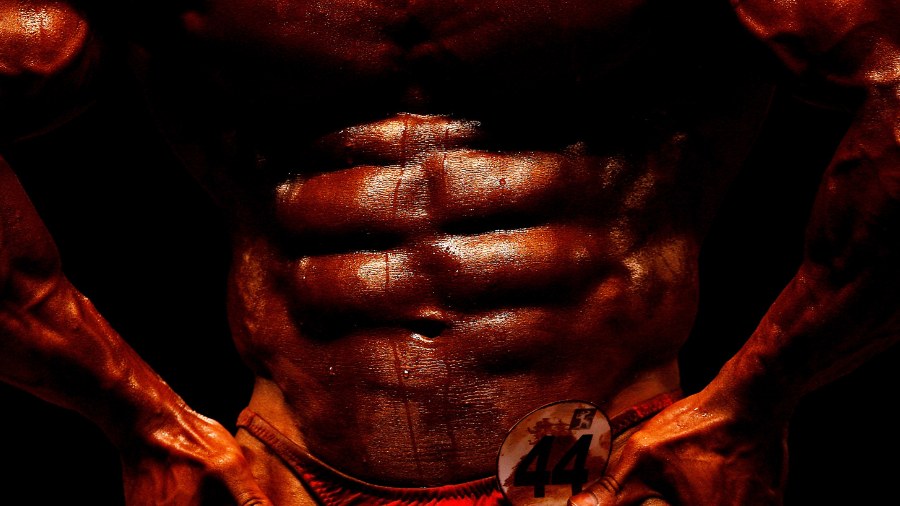Study: Large abs can lead to increased risk of heart disease
Feb 28, 2024, 6:00 AM | Updated: 7:53 am

A competitor flexes his abs during the 2008 Asian Beach Games in Bali, Indonesia. (Photo: Quinn Rooney, Getty Images)
(Photo: Quinn Rooney, Getty Images)
A new study claimed men with larger abdominal muscles are at a greater risk of heart disease later in life.
The study, published in the Journal of the American Heart Association, found all muscle isn’t the same. Britta Larsen, Ph.D., an associate professor at the University of California San Diego, said in a news release men with a higher area of abdominal muscle have a greater risk of cardiac issues. It’s a different story for men with greater muscle density. In that case, the denser the muscle, the better: Men with the densest muscle in their abdominal cavity had about one-quarter the risk of coronary heart disease later on.
More on Wash. healthcare: Seattle/King County free clinic helps nearly 3,000 people in the ‘missing middle’
“It’s an observational study. So men with larger abdominal muscle, we’re more likely to get heart disease.” Larsen told KIRO Newsradio.
The study was conducted with men in their mid-60s at the beginning of the research period, and the same men in their mid to late 70s at the end of the study.
“We’re not sure how many six-packs we’re looking at, but the big surprise was that more muscle in the abdominal cavity was associated with more coronary heart disease,” Larsen said.
However, the study did not find the same link with women.
“And that’s kind of the frustrating thing about observational research,” Larsen said, commenting on the differences between men and women with large abdominal muscles. “We don’t really know why.”
She said it could be that women are healthier than men or perhaps even smaller or that men have more muscle.
What is dense muscle and why does it matter?
Muscle density is the amount of muscle mass in a specific area of the body. The denser the muscle, the more powerful it is. A study by the National Library of Science found muscle density is more strongly associated with muscle strength than muscle size, and more strongly associated with physical performance.
“If you look at a muscle, even within that muscle cavity, there can be fat inside, sort of in between the muscle fibers,” Larsen explained. “We’re not talking about fat that’s on your belly or on the outside of your abdominal cavity. We’re talking about fat that’s actually inside the muscle.”
While Larsen stated it’s hard to know whether someone has healthy muscle density or not — due to it requiring a CT scan from a doctor — one of the study’s takeaways is for medical professionals and practitioners to look at muscle health as people are aging, especially given the extreme risk seen in men with the highest amount of muscle.
Larsen also shared that researchers were really shocked by the numbers.
“We had to keep going back and looking at them and saying, is this real?” she added. “The fact that we saw it for coronary heart disease, but not stroke, tells us that there really is something about muscle and heart health.”
More from Micki Gamez: Gen-X said goodbye to Seattle in 2022, making room for a younger generation
This is just the beginning for Larsen and the team. She plans to further the study.
“The next study I would love to do is investigating what gives you dense, healthy muscle?” she continued. “People see this and they want to know what can I do what is actionable? We don’t just want to know what our risk is. But what can we actually do to change that risk? So I think we don’t have good information on that, at this point. The next step is seeing what types of behaviors and what types of exercise will actually change the composition of muscle.”
You can read more of Micki Gamez’s stories here. Follow Micki on X, formerly known as Twitter, or email her here.













